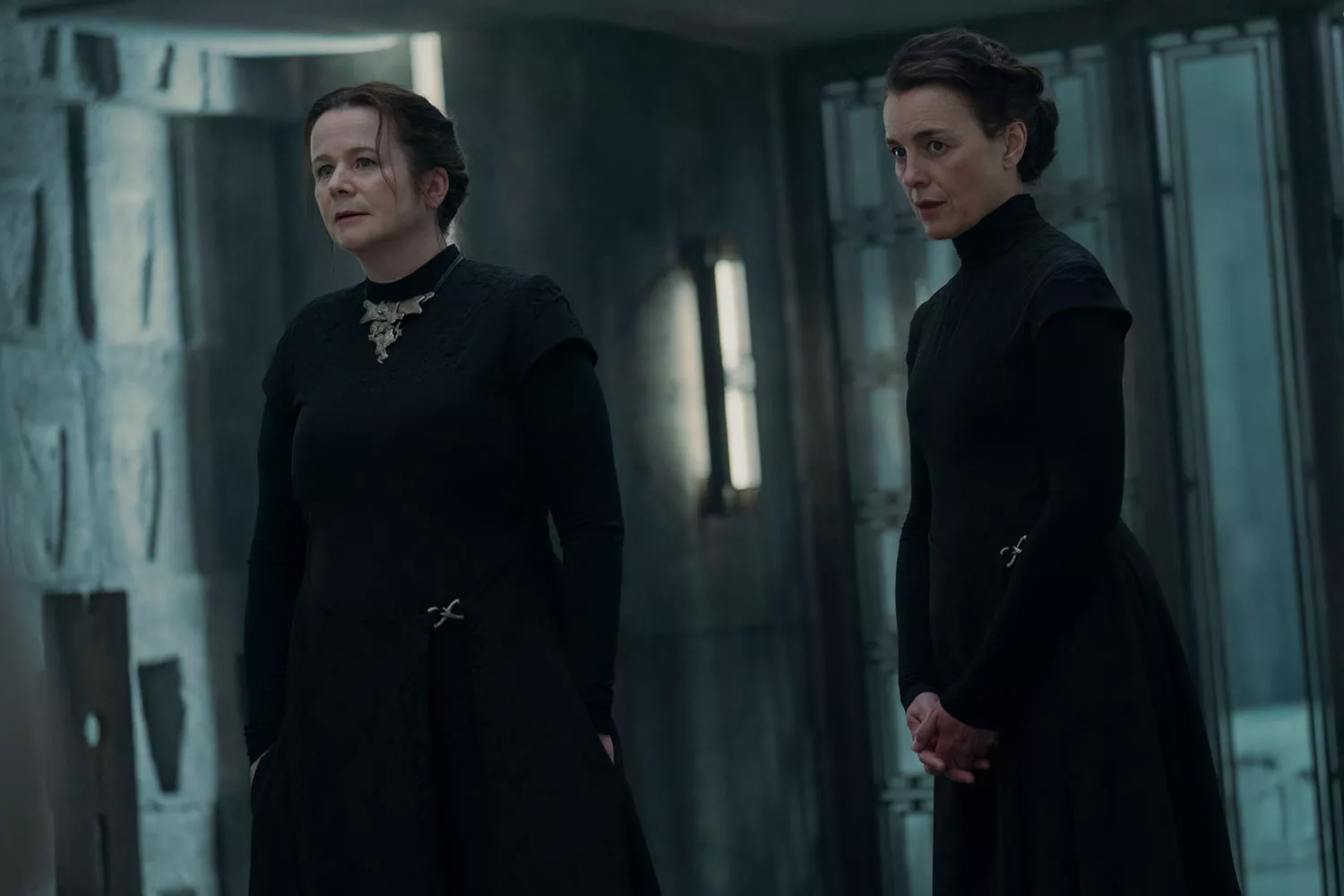Dune: Prophecy Review – A Powerful Prequel Where Sisterhood Shines
In the thrilling new series Dune: Prophecy, the young Bene Gesserit sisterhood must unite to navigate deadly trials and political intrigue, setting the stage for the grand “Dune” saga. This prequel, set 10,000 years before the rise of Paul Atreides, plunges viewers into a time when the Bene Gesserit were not yet the all-powerful force they’d become.
In Dune, the Bene Gesserit are both captivating and chilling—a shadowy sisterhood with extraordinary abilities that covertly controls the galaxy in pursuit of their goal to create a powerful male heir. HBO’s Dune: Prophecy reveals that this influence was hard-won. Based on Sisterhood of Dune by Brian Herbert and Kevin J. Anderson, Prophecy explores the Bene Gesserit’s origins, delivering a tale that’s bloody, intense, and at times, genuinely unsettling.
The story follows two Harkonnen sisters, Valya (Emily Watson) and Tula (Olivia Williams), who lead a school for gifted youth while grappling with a looming catastrophe that could end humankind—or worse, upend their meticulously laid plans. The Bene Gesserit aim to place one of their own on the throne by arranging a marriage between Princess Ynez (Sarah-Sofie Boussnina) of House Corrino and a young heir from House Richese. But their plans are threatened by Desmond Hart (Travis Fimmel), a battle-hardened soldier returned from Arrakis with mysterious powers and a vendetta against the Bene Gesserit. As Valya contends with Desmond over Emperor Javicco’s (Mark Strong) allegiance, Tula and her sisters must investigate an ominous, sandworm-related prophecy that threatens everything.
While Prophecy rewards longtime Dune fans with deeper lore, newcomers can still enjoy it as a standalone sci-fi series, thanks to its compelling characters and internal conflicts. The houses of Corrino, Harkonnen, and Richese—and of course, the Bene Gesserit—each pursue survival through complex alliances, betrayals, and calculated risks. While prior knowledge of the Dune universe adds context, Prophecy establishes enough of its world to stand on its own. Spotting connections to the original saga, such as early relatives of key houses, makes it all the more enjoyable.
The series quickly gains momentum through nonlinear storytelling, showing Valya and Tula’s journey from disgraced Harkonnen daughters to powerful leaders in the Bene Gesserit, highlighted by grueling rituals like the spice agony. Showrunner Alison Schapker keeps the episodes moving at a measured pace, delving into the idea of sisterhood—both as a bond between Valya and Tula and as a shared purpose within the Bene Gesserit—while unraveling mysteries and delivering unexpected revelations. No one in Prophecy is truly safe, making each episode suspenseful.

Watson and Williams anchor the series with stellar performances. Watson’s Valya is intense and resolute, willing to do whatever it takes to achieve her goals. Younger Valya (Jessica Barden) brings a rawness to the character, channeling her family’s shame into the development of The Voice, a power that will shape the Bene Gesserit for centuries. Watson captures Valya’s steely resolve, but also her rare vulnerability as she realizes the Emperor may be slipping out of her grasp, swayed by Desmond’s influence.
Williams, as Reverend Mother Tula, provides a softer counterpoint—a compassionate mentor with a soft spot for her young protégé Lila (Chloe Lea), yet equally formidable when protecting her family or winning her sister’s approval. While she appears the gentler of the two, Williams and young Tula (Emma Canning) make clear that Tula is no pushover, willing to push boundaries to preserve her sisterhood and their legacy. However, by keeping Valya and Tula separated on their individual paths, Prophecy at times feels like two parallel narratives tied together by the Bene Gesserit name. This disjointed structure could weaken the series if the sisters’ connection remains limited.
Several other characters, including Princess Ynez and her brother Constantine (Josh Heuston), along with Bene Gesserit novices like Emmeline (Aoife Hinds) and Theodosia (Jade Anouka), feel underdeveloped so far. Hopefully, as the series progresses, they’ll receive more screen time to deepen the dynamics within the Bene Gesserit and their allies.
Dune: Prophecy Review – A Powerful Prequel Where Sisterhood Shines
At its peak, Prophecy thrives on the morally ambiguous scheming and alliances between its characters. Spice-driven exploits, questionable medical practices, brutal murders, and complicated romances drive home the power struggles and personal sacrifices that fuel the story. Even Valya’s adversary, Desmond, with his fierce demeanor and complex backstory, brings a dangerous allure that could anchor a spin-off series of his own.
Though Dune: Prophecy doesn’t involve Denis Villeneuve, his influence is still felt. Stunning, atmospheric visuals echo the cinematography of Dune and Dune: Part Two, contrasting Salusa Secundus’s warm, dusty tones with Wallach IX’s stark landscapes where the Bene Gesserit reside. The visual effects and costuming, from somber Bene Gesserit robes to vibrant ceremonial dresses, add to the show’s immersive appeal.
Only four episodes were available for this review, so it remains to be seen if the series will conclude its mysteries satisfyingly. Regardless of who survives the coming upheaval, Dune: Prophecy expands the universe with a compelling dive into its shadowy past. Sisterhood is the series’ heartbeat, and the Bene Gesserit’s reign continues to captivate. Grade: B+.
Latest new from Owl Fashion Shop
